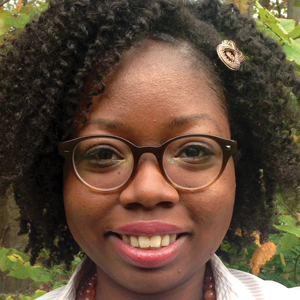‘I wanted to go where I was needed’
Yuliya McAnany talked to ASBMB Today about her work as a senior associate scientist at Amicus Therapeutics, a biotechnology company developing therapies for people living with rare metabolic diseases. McAnany has been with Amicus since she earned her master’s in biochemistry and molecular biology in 2019. This interview has been condensed and edited.

Current position: Senior associate scientist at Amicus Therapeutics
Education: M.S. in biochemistry and molecular biology, University of Rochester
First job outside of academia: Associate scientist at Amicus Therapeutics
Favorite molecule or protein: "I was trained as an epigeneticist, and so I like the nucleosome and the histone. I still have a soft spot in my heart for epigenetics and post-translational modification, such as histone modifications. I believe histones are incredible, and I don't think people pay attention to them as much as they should."
Tell me about your employer.
Amicus Therapeutics is a midsize biotechnology company focused on rare diseases. There is an opportunity to potentially make an impact on patient populations that are often not focused on — certainly not as much as more common diseases such as diabetes, cancer, Alzheimer’s, etc. One of the things about Amicus that I really like is their patient focus and dedication to the rare disease community.
What does a day in your life at your job look like?
I mostly do bench work.
Right now, my main role is to develop reagents. I purify proteins. I screen constructs. Usually, I will have some variation of DNA prep to take care of. I might check on a transfection. I also do a lot of stable cell-line development. I transfect our lead constructs or our reagent construct that secretes in a protein-production line. And then I’ll make sure that they’re expressing what they need to be expressing.
If it’s a harvest day, that’s pretty intensive work. I centrifuge everything and get my batch ready. I’ll do the column chromatography on it and characterize.
Why did you pursue a career in industry?
I was in a Ph.D. program at the University of Rochester, and I left that program with my master’s, which is kind of unorthodox.
I knew a few years into my program that academia was not the place for me. It was focused on publishing, and I wasn’t interested in writing papers. I wasn’t making important change. I was working in infant leukemia, and I was disheartened thinking about all the work that I was doing that wouldn’t directly help an infant with leukemia.
I wanted something more fulfilling. I wanted to go where I was needed. I would much rather be doing work that a person living with a rare disease could potentially benefit from. At Amicus, even the smallest contribution that I make could be worth something.
Tell me about a proud moment.
In May, I presented a poster at the American Society for Gene and Cell Therapy meeting, which was an incredible honor. That was my first professional conference presentation, and it went well. I was very proud of my poster. I'm also listed as a co-inventor on the patent for a project I presented.
Any advice for job seekers?
Having a specialized skill raises your value. I was the protein purification person in my graduate lab. Oftentimes, in pharma, having one very specialized skill is what gets you hired. At startups, you're going to be working on a variety of projects because they don't hire quite as many people. Being able to say “I know how to work a project backward and forward, and I also have this very specialized skill” can really make you an asset.
Enjoy reading ASBMB Today?
Become a member to receive the print edition four times a year and the digital edition monthly.
Learn moreFeatured jobs
from the ASBMB career center
Get the latest from ASBMB Today
Enter your email address, and we’ll send you a weekly email with recent articles, interviews and more.
Latest in Careers
Careers highlights or most popular articles
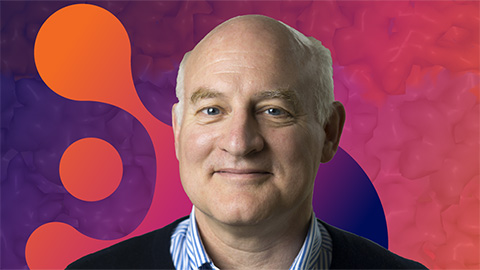
Building the blueprint to block HIV
Wesley Sundquist will present his work on the HIV capsid and revolutionary drug, Lenacapavir, at the ASBMB Annual Meeting, March 7–10, in Maryland.
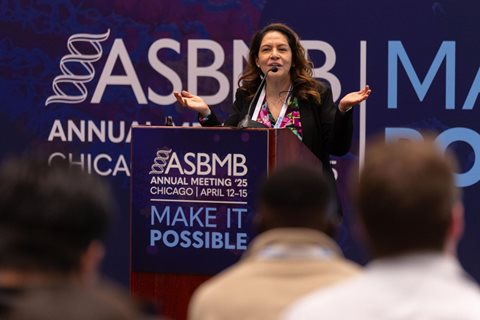
Upcoming opportunities
Present your research alongside other outstanding scientists. The #ASBMB26 late-breaking abstract deadline is Jan. 15.
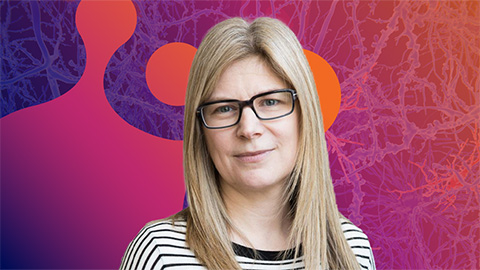
Designing life’s building blocks with AI
Tanja Kortemme, a professor at the University of California, San Francisco, will discuss her research using computational biology to engineer proteins at the 2026 ASBMB Annual Meeting.

Upcoming opportunities
#ASBMB26 late-breaking abstract submission opens on December 8. Register by Jan. 15 to get the early rate on our Annual Meeting.

Make your abstract stand out
Ensure your research is impossible to overlook. Get quick, practical reminders for crafting an abstract that attracts readers and helps you build connections at the conference.
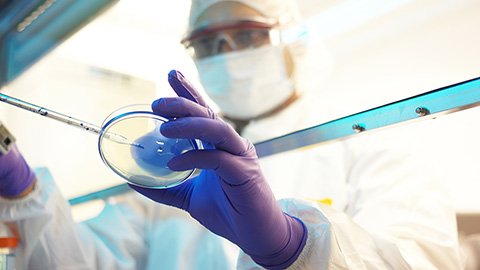
Inside industry postdocs
As more Ph.D. scientists look beyond academia, industry postdocs offer a new kind of training, where mentorship meets mission-driven research. Fellows at Pfizer and Genentech share how these programs prepare them to translate discovery into impact.

